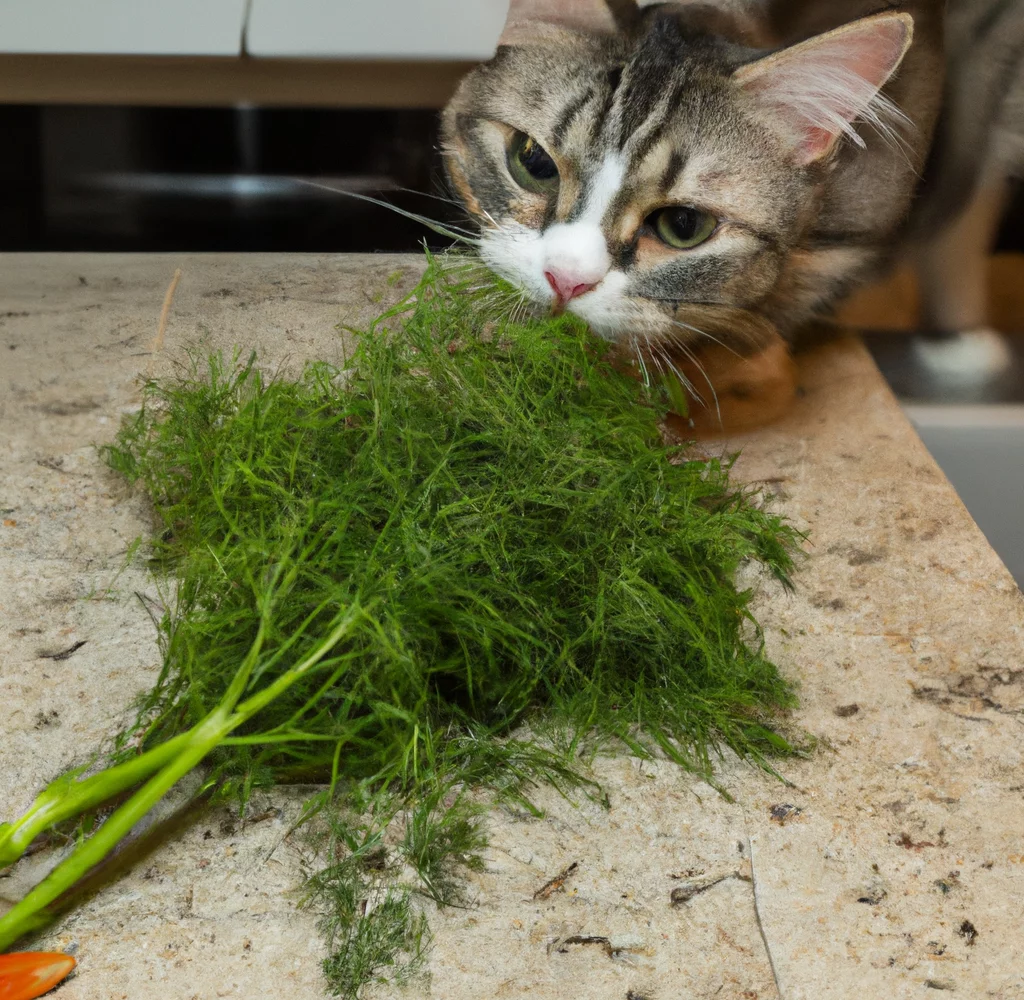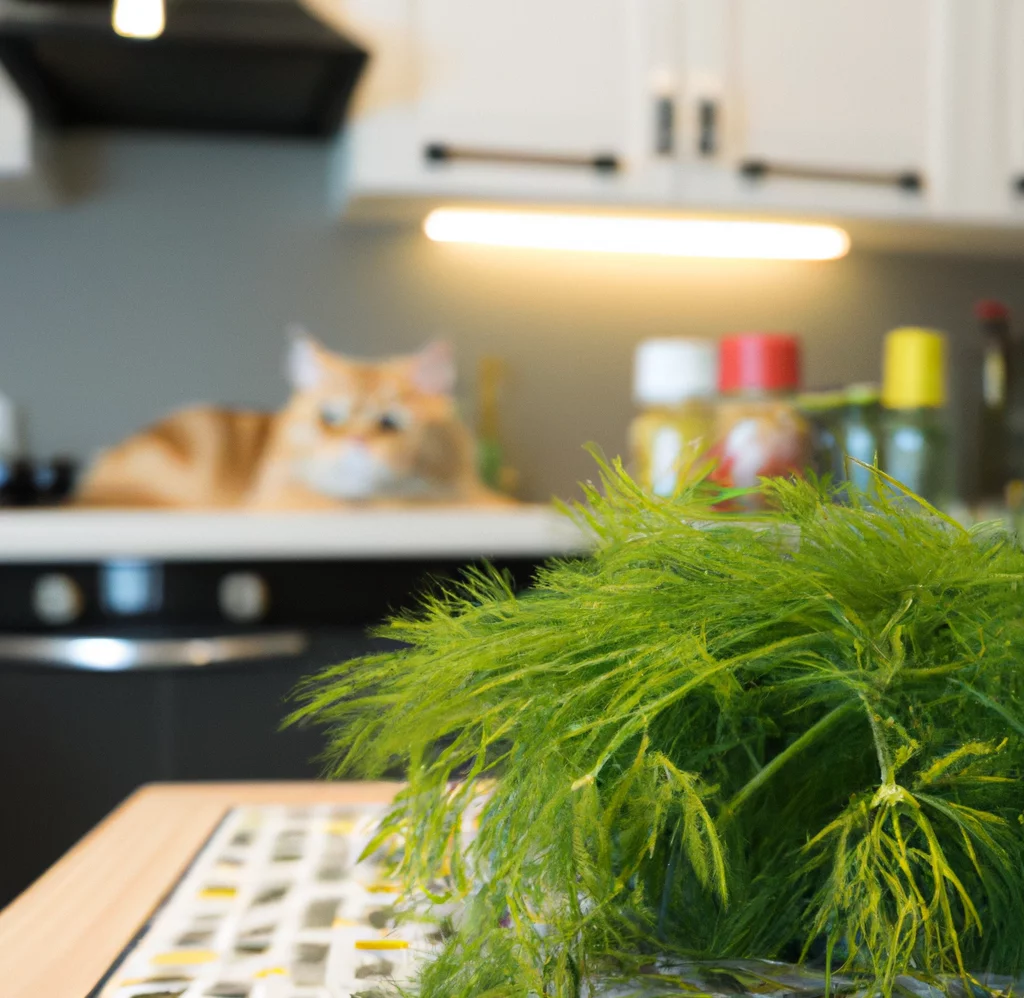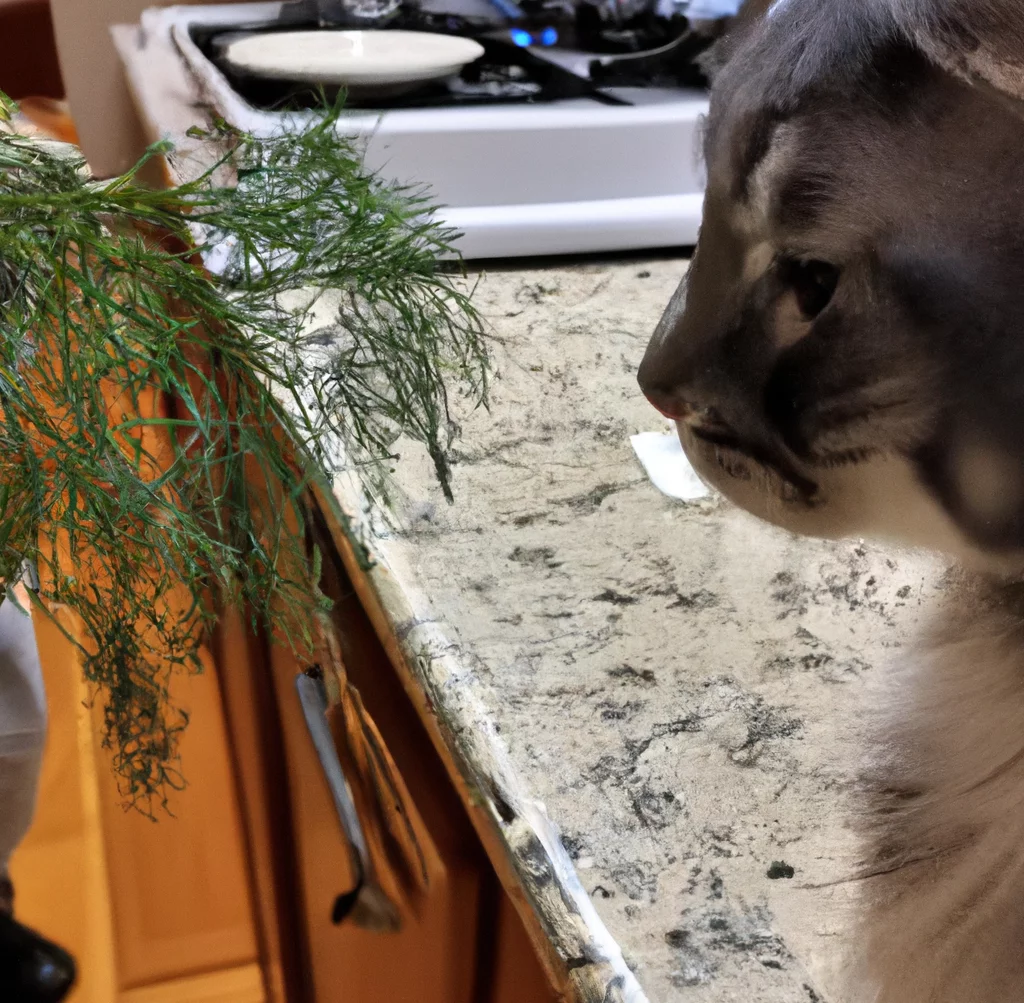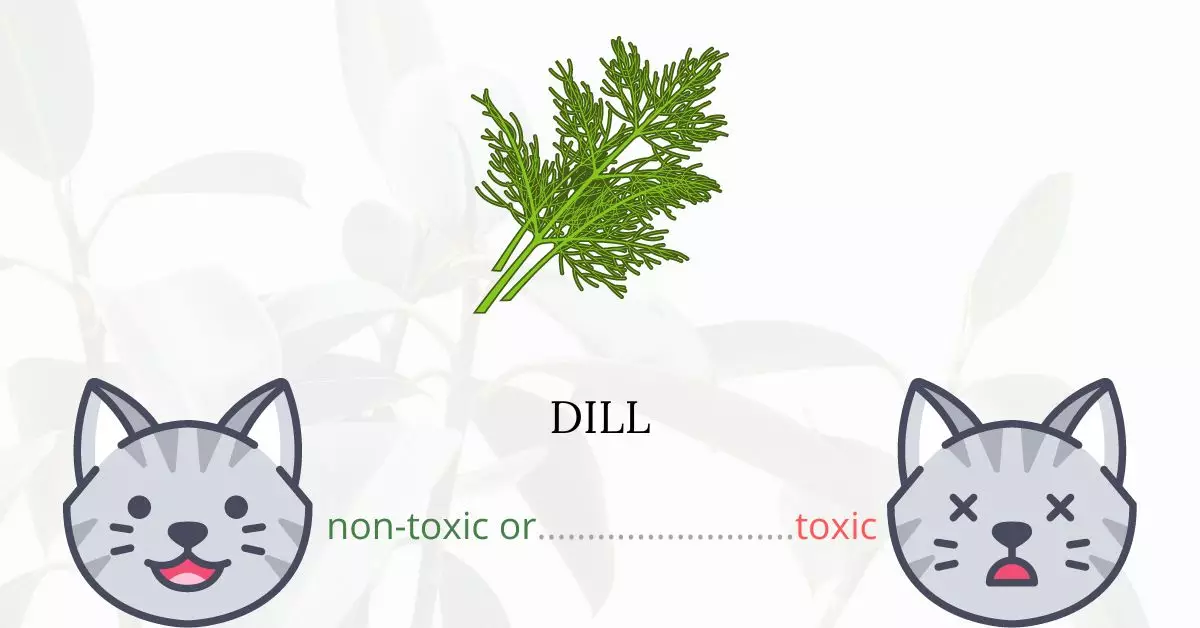Dill is not toxic for cats and is considered one of the safe herbs for our feline friends.
This article is the product of collaboration with a team of experienced DVMs (doctors of veterinary medicine). With their expert insights, combined with extensive research from high-authority websites such as the ASPCA and PetMD, we strive to provide accurate and up-to-date information about the potential risks associated with various plants, specifically Dill in this instance, and their effects on cats.
But, just because dill is non-toxic, does it mean cats can consume it in the same way humans do? We’ll delve deeper into this topic as you read on.
Can Cats Eat Dill?

Dill is safe for cats to eat. In fact, it includes a variety of vitamins and antioxidants that may benefit your cat’s diet. Dill can also assist with any blood sugar problems your cat may be having in some situations.
If you want to offer dill to your cat, make sure to just feed the leaves, since the tougher stems might be difficult to digest. Feel free to slice and sprinkle fresh dill fronds into your cat’s regular mealtime food.
However, because cats are obligate carnivores, the majority of their food should be meat. Unlike humans, consuming a lot of fruits and vegetables should not be a staple of any cat’s diet. Dill is not harmful to cats, but the health advantages are insufficient to make it a staple of a feline’s diet.
There is also the possibility that your cat is allergic to dill which can cause stomach upset.
What is Dill?

Scientifically known as Anethum graveolens, dill is an annual herb from the Apiaceae family. It is the only species belonging to the Anethum genus. Dill is extensively grown throughout Eurasia, where its leaves and seeds are used as a herb or spice to flavor cuisine.
Dill leaves, sometimes called “dill weed” or “dillweed”, are commonly used as a herb not only in Europe but also in Central Asia and in other parts of the world.
Dill’s aromatic fern-like leaves are used to flavor a variety of cuisines, including gravlax (cured salmon) and other fish dishes, borscht and other soups, and pickles (where the dill flower is sometimes used).
Dill is best used fresh since it loses taste quickly when dried. However, freeze-dried dill leaves keep their flavor for several months.
Dill oil is derived from the plant’s leaves, stems, and seeds. The oil extracted from the seeds is processed and used to make soap.
Keeping Cats Away From Dill

If you are growing dill or other houseplants at home, you may keep them away from your cats by trying out some of the methods that I will be sharing with you.
First, put your plants in a high place or on a shelf that is inaccessible to your feline companions. While cats are famed for being high jumpers, they typically would not make an effort to reach a plant that is not within their paw’s reach.
Secondly, you can use natural deterrents to prevent your cats from coming near your plants. Remember to be cautious and only use a deterrent that is not harmful to both your plants and cats.
Lastly, the most ideal way to prevent your cats from indulging in too much of your plants is to train them. You can try different approaches to disciplining your cats. This may take quite some time but it will be for the welfare of both your cats and plants.
Plants to Avoid For Your Cats
If you are a cat owner and unsure if the plants growing in your yard are harmful to your cats, check out this list of toxic plants for cats. You can also check our list of non-toxic plants for cats.





